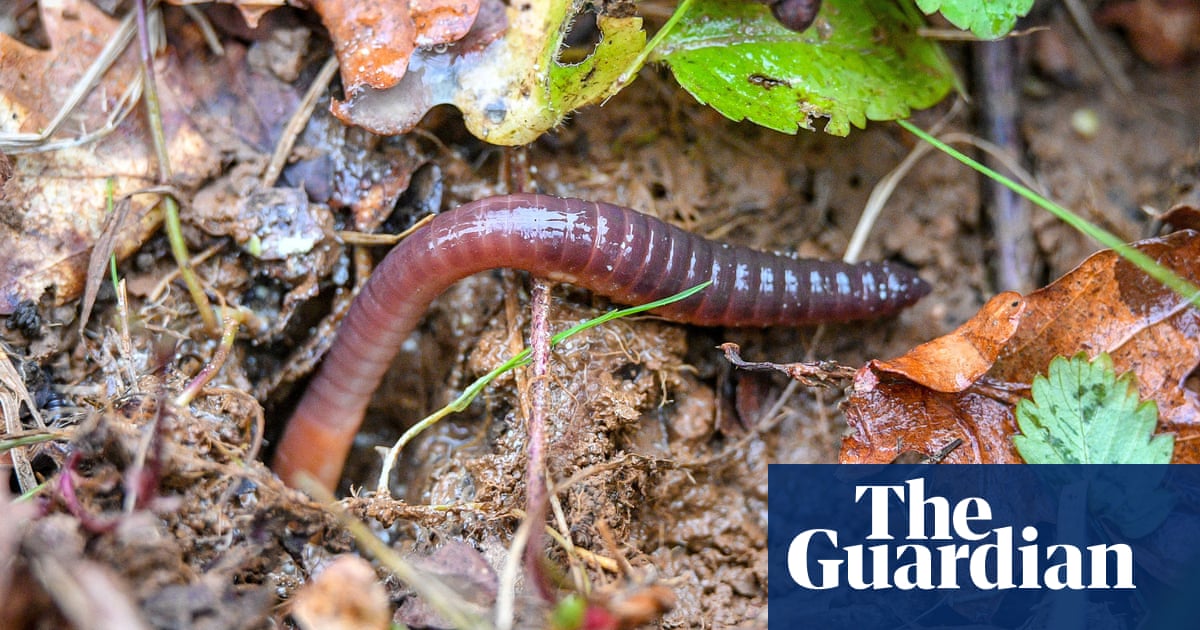
Worms fail to thrive in earth containing microplastics, new research has shown, adding to the growing body of evidence of impacts from the increasingly widespread contaminants on the natural world.
The rosy-tipped earthworm, Aporrectodea rosea, is one of the most common found in farmland in temperate regions. Scientists found that worms placed in soil loaded with high density polyethylene (HDPE) – a common plastic used for bags and bottles – for 30 days lost about 3% of their body weight, compared with a control sample of similar worms placed in similar soil without HDPE, which put on 5% in body weight over the same period.
Bas Boots, lecturer in biology at Anglia Ruskin University, and lead author of the study, said the specific reasons for the observed weight loss were not yet clear, but could be owing to the effects of microplastics on the worms’ digestion. “These effects include the obstruction and irritation of the digestive tract, limiting the absorption of nutrients and reducing growth,” he said.
If the presence of microplastics inhibits earthworm growth on a wide scale, it could have implications for soil health and farming, as worms are vital part of the farmland soil ecosystem.
The research, published in the journal Environmental Science and Technology, adds to a growing number of studies examining the effects of microscopic particles of plastics on invertebrates and fish. While it is too soon to draw conclusions about the effects on human health, studies have found harm to aquatic lugworms as well as possible effects on fish and molluscs.
Microplastics have now been found in tapwater, the seas around the world, human stools, in the air and a wide variety of other environments.
Soils in many places are likely to harbour large numbers of microplastics, deposited there from their presence in sewage, in water and in the air. However, the extent of contamination is largely unknown, though there are European studies reporting anything between 700 and 4,000 plastic particles per kilogram of soil in some agricultural land.
from Hacker News https://ift.tt/2I10HG0
No comments:
Post a Comment
Note: Only a member of this blog may post a comment.